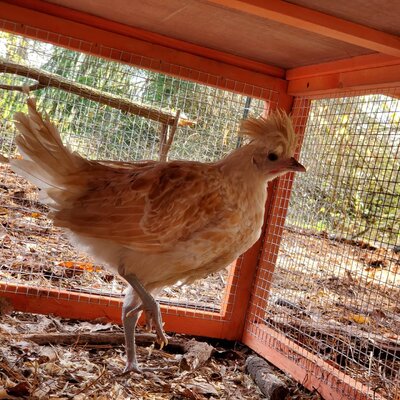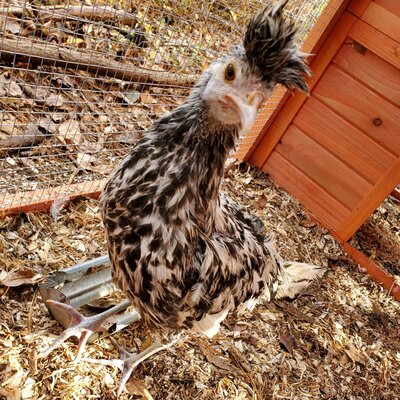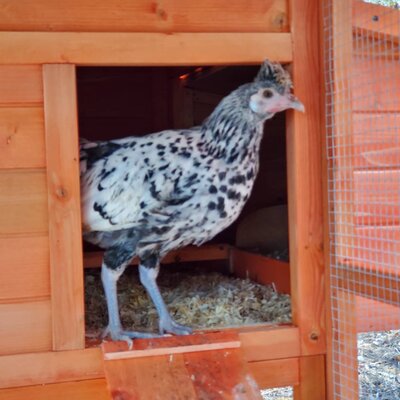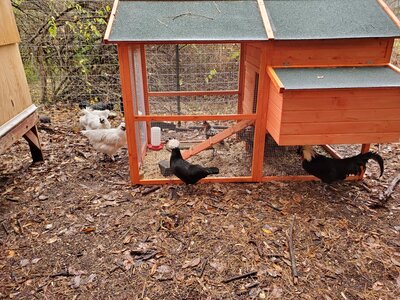I picked up these 3 last weekend at a farm just starting out their chicken business. They were sold to me as 9 week old pullets, so fingers crossed on that part, I don't need anymore roosters!
I have them in this little coop to quarantine and let the 2 groups get to know each other. It is inside my chicken yard, which leads me to question one. Was this a mistake? Have I put my flock in jeopardy by having the quarantine coop inside the yard?
Question 2, I'm seeing some poop which is concerning. They are pooping green and there really isn't any grass for them to eat, plus I saw a very watery diarrhea looking poop that was very light in color. I read green could mean Marecks, but I don't see any other signs of that, and I'm pretty sure the farm is NPIP, which means we should be clear on that I believe. I'm wondering if the watery poo is due to the feed I use. I am giving them Home Fresh Multi Flock grower which is what I feed my roosters, and it contains 22% protein. This is what I raised my flock on, but if they were started on a lower protein feed, could that be causing the diarrhea?
Quesrion 3, how long do you quarantine before mixing them into the existing flock? I believe I read one month.
Sorry for the long post, and thanks in advance for any info.
I have them in this little coop to quarantine and let the 2 groups get to know each other. It is inside my chicken yard, which leads me to question one. Was this a mistake? Have I put my flock in jeopardy by having the quarantine coop inside the yard?
Question 2, I'm seeing some poop which is concerning. They are pooping green and there really isn't any grass for them to eat, plus I saw a very watery diarrhea looking poop that was very light in color. I read green could mean Marecks, but I don't see any other signs of that, and I'm pretty sure the farm is NPIP, which means we should be clear on that I believe. I'm wondering if the watery poo is due to the feed I use. I am giving them Home Fresh Multi Flock grower which is what I feed my roosters, and it contains 22% protein. This is what I raised my flock on, but if they were started on a lower protein feed, could that be causing the diarrhea?
Quesrion 3, how long do you quarantine before mixing them into the existing flock? I believe I read one month.
Sorry for the long post, and thanks in advance for any info.







